So, what does “Persistent Postural Perceptual Dizziness” mean? I know it looks like a very complicated name, but once I explain it to you, you will see that the name makes sense.
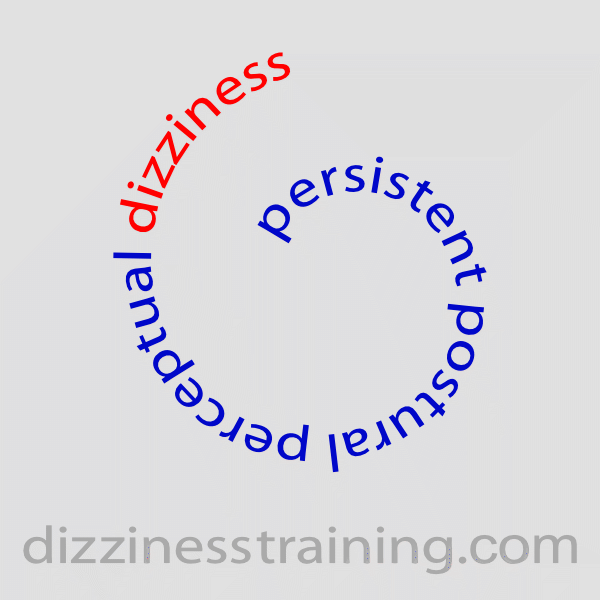
I think even medical professionals struggle to remember or even say, “Persistent Postural Perceptual Dizziness”! Fortunately, for convenience, it is more often called “PPPD” or “3PD”. In this website, I will use various forms of it, sometimes using the full form, and at other times shortening it.
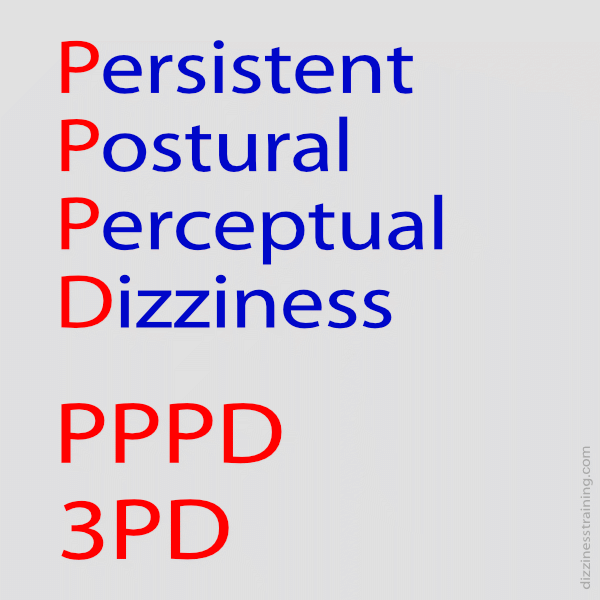
Even though the name “Persistent Postural Perceptual Dizziness” is quite lengthy, it can help us to understand the condition. By understanding what each word stands for, we can piece together what the condition entails. However, before I progress further, I must warn you not to use this website to diagnose PPPD. What I give here is only a basic explanation and I am not a professional in this area. So please rely on a proper medical professional to get your diagnosis.
Let us now start to understand what PPPD is by starting with the last word in its name; “dizziness”.
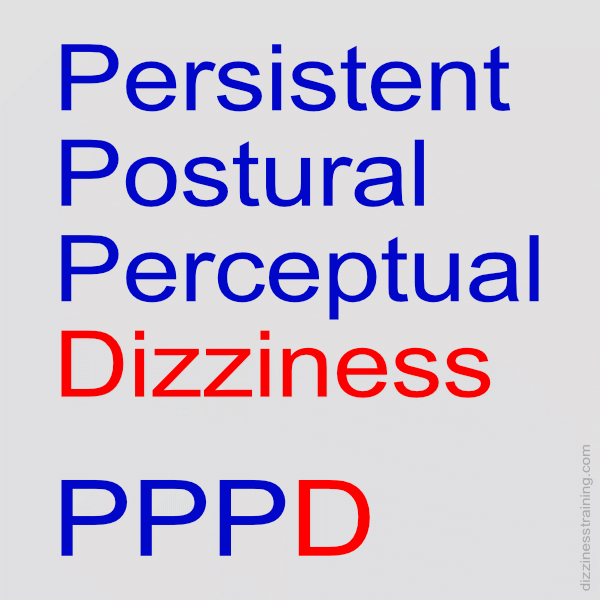
Dizziness is a sort of lightheadedness and/or feeling faint. It can be a sort of floating feeling as if you are walking clouds. I am guessing that you probably already know the feeling of dizziness, which is why you are visiting this website about reducing “dizziness”!
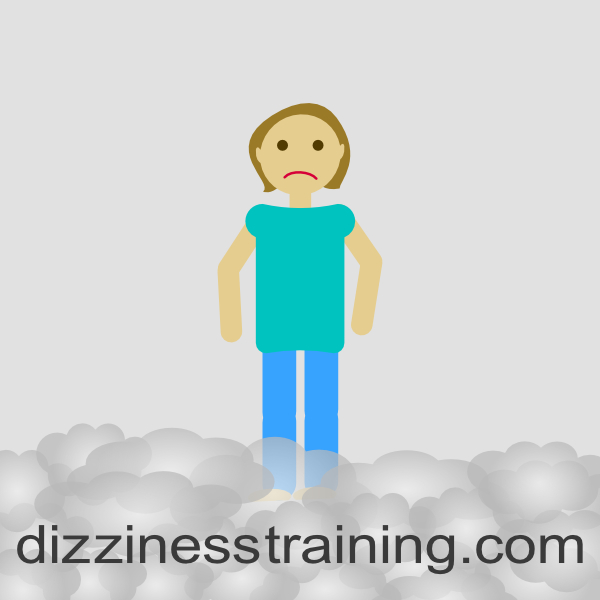
At this point, there is something else I need to point out. There is something called “vertigo” which is where you feel that things around you are “spinning”.
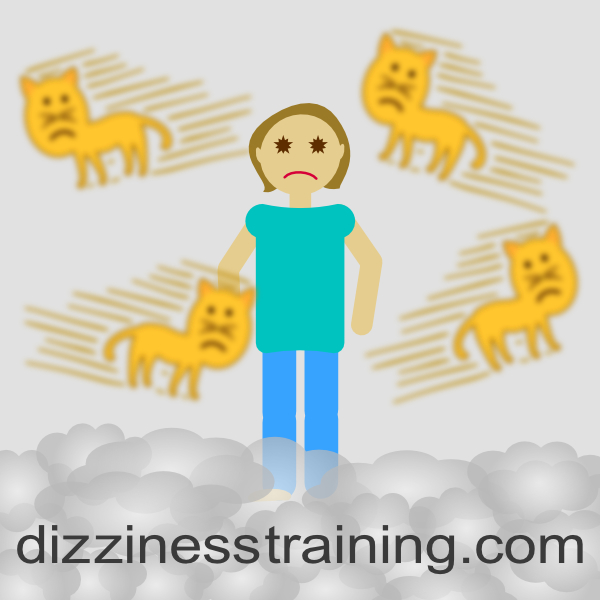
Dizziness can occur with or without vertigo. Generally, dizziness associated with PPPD is not accompanied by vertigo.

However, there are other conditions that can cause vertigo which can trigger the start of a PPPD episode. So one may well have a condition that causes vertigo and then continues as PPPD. i.e. you can have two diagnoses.
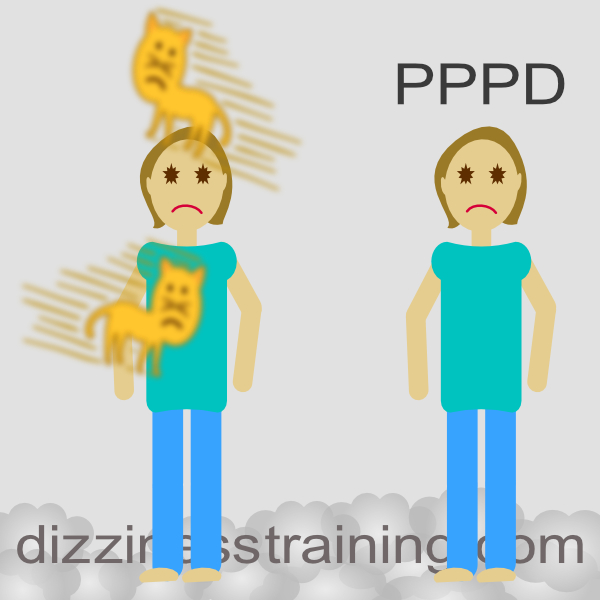
Now let us look at the second last word; “perceptual”.
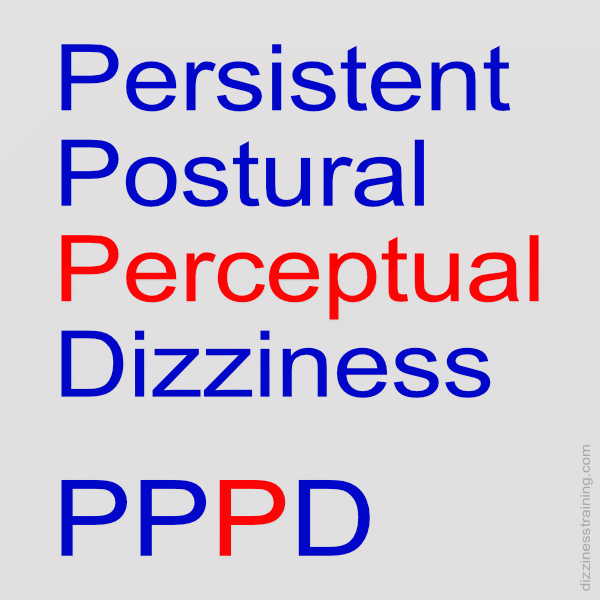
In the context of dizziness, perceptual means that it involves the sensing system that is involved with balance. As I will explain later, your brain involves lots of sensory information when keeping your balance, and this includes messages from your vision, special balance organs in your ear, and position sensors in your body, such as those in your neck.
Next, we can look at the word “postural”.
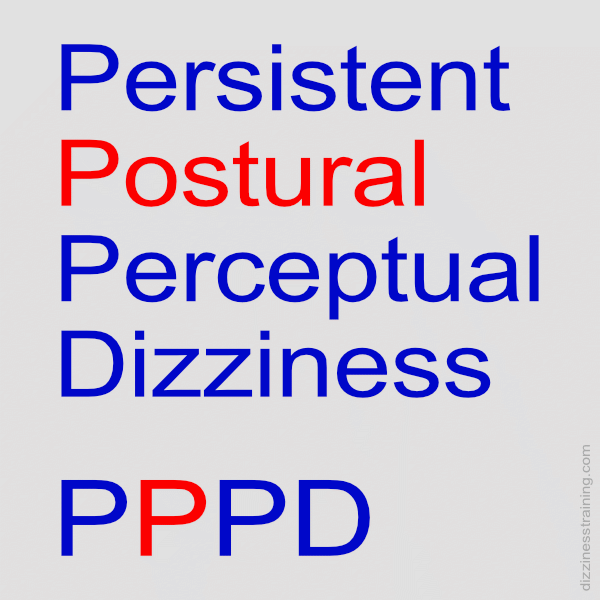
Postural is a sophisticated way of saying, the position of your body. In essence, with PPPD, dizziness can be influenced by posture. For example, often it is more pronounced when one is standing rather than say when one is sitting on a sofa.
Finally, we can go to the first word in the name, “persistent”.
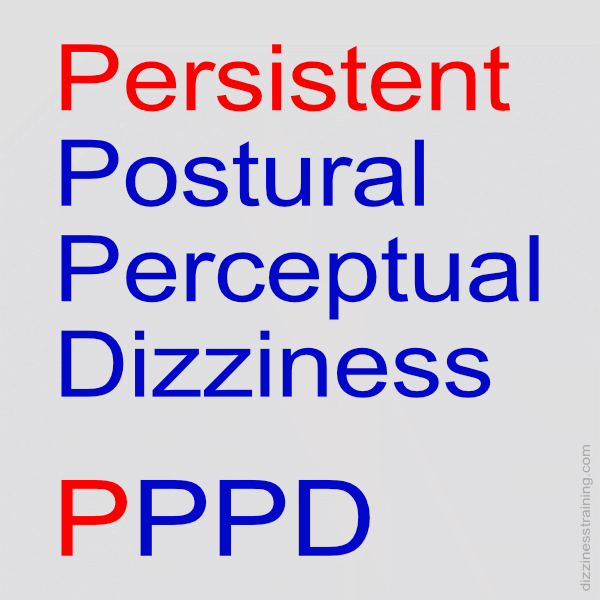
In the medical world, PPPD is considered a chronic condition, which means, it is “persistent”, rather than short-lived. Everyone has a different idea of what short and long mean, so the medical world has decided on a cut-off of about 3 months. This does not mean that you would have dizziness every single day for at least three months, but rather on most days.
All these ingredients together make up Persistent Postural Perceptual Dizziness. The next section will discuss what happens in the brain in those with PPPD.